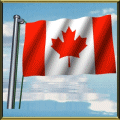The members of the Order from England founded Washington Lodge No. 1 on April 26,1819, by self-institution. One of these
Brothers was Thomas Wildey , the first Noble Grand and the man revered as the founder of Odd Fellowship in North America.
A charter was received from Duke of York Lodge in Preston, England, in 1820, a year and a half after its self-institution.
A second lodge was formed in Baltimore in 1819, but these two lodges and those in New York were unaware of each others'
existence for some time, communications being slow in those days, and there being no reason such information would travel
from one city to another except by pure chance.
In 1821, the "Grand Lodge of Maryland and of the United States of America, of the Independent Order of Odd Fellows," was
founded. Brother Wildey also served as the first Grand Master/Grand Sire of the first Grand Lodge, for a period of 12 years.
Several more lodges were established, and in 1824, the "Grand Lodge of the United States" now termed "The Sovereign Grand
Lodge," was separated from the Grand Lodge of Maryland. The Independent Order of Odd Fellows in North America (United States
and Canada) became independent from the Order in England in
History of Odd Fellowship in Canada
By H. Robert Howard, 73744.3406@compuserve.com
August 10, 1843 -- Twenty-four years after the birth of the American Order in Baltimore, Maryland, the first Odd Fellow
lodge instituted in Canada was Prince of Wales Lodge No. 1 in Montreal, P.Q. It received its charter through the efforts of
two Amercian Oddfellows living in Montreal. They petitioned the Grand Lodge of the United States for a lodge charter. That authority granted the charter
after some very serious deliberations.
Within fifteen months, there were three lodges in the Montreal area who petitioned and received a charter to operate as
the Grand Lodge of Canada under the leadership of W.M.B. Hartley as Grand Master.
This was the beginning of a brief period of prosperity. The Order spread rapidly to become a fashionable and popular society
in Canada. Montreal was the capital of Canada in 1843 and there were amongst the Odd Fellows, many prominent elected members
of parliament. The lodges became private social clubs in the eyes of some of the members. These members could retreat from
their daily hectic parliamentary lifestyle to enjoy some private male activities.
During the formative years, those members engaged in parliamentary activities were strong free thinking nationalists. Having
learned of the change approved by the Grand Lodge of the United States, they felt that the Canadian operations should be more
independent. Accordingly, they petitioned the Grand Lodge of the United States for sovereign status as a quasi-independent
jurisdiction. Subsequently, the Grand Lodge of British North America received this authority with some limitations in their
powers. This new Grand Body was the first of its kind and included both the Odd Fellow and Patriarch branches in Canada.
At the peak of its short-lived history, the Grand Lodge of British North America chartered four Grand Lodges and twenty-eight
Odd Fellow Lodges under their respective jurisdictions. In addition, because this Grand Body served all of Canada, one Odd
Fellow Lodge located in Nova Scotia was granted a charter. However, the burden of this organization may have been too heavy
or the novelty of membership in the Order may have worn off on the senior officials of the Grand Lodge of British North America.
They defaulted on their responsibilities to the subordinate members of the Order. All lodges in the city of Montreal formally
disbanded in 1853. The debts of the Grand Lodge were paid by the subordinate lodges remaining. The leadership walked away
from the charter, so that finally in 1854 the Grand Secretary of the Grand Lodge of the United States made a visit to Quebec
City. He was trying to ascertain whether any hope was evident to resuscitate the Order in Canada. Unfortunately, there was
no positive evidence to revive the charter of the Grand Body in Canada. The Grand Secretary, reported to the annual session
of the Grand Lodge of the United States these facts. He recommended that the seven orphaned Odd Fellow Lodges in Ontario and
the one in Nova Scotia be brought under the umbrella of the Grand Lodge of the United States.
The short career of the first sovereign quasi-independent jurisdiction ended. In retrospect, the Order has survived in
Canada and seven jurisdictions continue to operate under the Sovereign Grand Lodge to this day, our jurisdiction being
the Grand Lodge of the Atlantic Provinces
INTERNATIONAL ODD FELLOWSHIP
The early day Odd Fellows in California played an important part in the spreading of Odd Fellowship to other countries
when Templer Lodge No. 15 of San Francisco by unanimous vote appropriated $1,200 to establish the Order in Germany in 1869.
Wuerttemberg Lodge No. 1 of Stuttgart was instituted the following year by John A. Morse, a Past Grand Master of California.
From Germany the Order spread to many other countries and territories throughout Europe. The Order is presently located in
Australia, Austria, Belgium, Chile, Cuba, Denmark, Finland, France, Germany, Iceland, Labrador, New Zealand, Norway, The Netherlands,
Peru, Puerto Rico, Sweden, Switzerland, Uruguay, and Venezuela. Due to recent political changes in Eastern Europe and the
Balkan countries, Odd Fellowship has already been re-established in Leipzig, Germany. The ground work is being laid to establish
lodges in other parts of the former Eastern area of Germany, Estonia, Lithuania, Latvia, Poland, and Hungary, under the leadership
of the Odd Fellows in Europe

